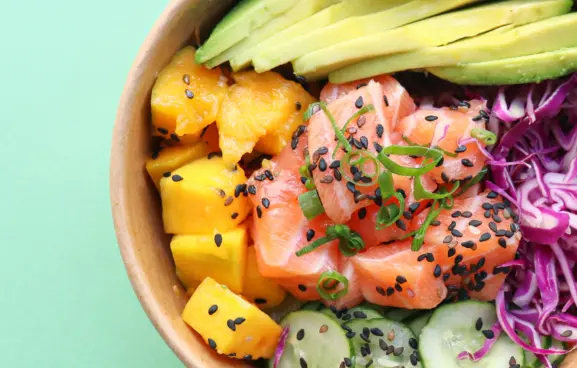The Wholesome Choice: A Dive into the World of Organic Food
In today’s world, we’re bombarded with food choices. However, with an increasing focus on health and sustainability, organic food has emerged as a popular option. But what exactly is organic food, and why should you consider it for your next grocery haul?
Demystifying Organic:
Organic food is produced using methods that prioritize natural processes over synthetic interventions. This means:
-
No Synthetic Pesticides or Herbicides: Organic farmers rely on natural pest control methods and crop rotation to maintain healthy crops.
-
No Synthetic Fertilizers: Organic farming emphasizes building soil health through compost and manure, promoting natural nutrient cycles.
-
No Genetically Modified Organisms (GMOs): Organic food is free from genetically engineered ingredients.
-
Animal Welfare Considerations: Organic livestock standards often mandate humane treatment, access to the outdoors, and organic feed.
The Benefits of Going Organic:
There are several compelling reasons to choose organic food:
-
Reduced Exposure to Chemicals: Organic food minimizes your intake of synthetic pesticides and fertilizers, potentially reducing your exposure to harmful chemicals.
-
Potential Health Benefits: Studies suggest organic food may contain higher levels of certain antioxidants and nutrients compared to conventionally grown produce.
-
Environmental Sustainability: Organic farming practices promote soil health, biodiversity, and water conservation, benefiting the environment in the long run.
-
Supporting Sustainable Practices: Choosing organic supports farmers who prioritize environmentally friendly agricultural methods.
Is Organic Always Better?
While organic food offers a range of benefits, it’s important to consider some nuances:
-
Cost: Organic food can be more expensive than conventionally grown produce.
-
Availability: Organic options may be less readily available in all areas, particularly smaller grocery stores.
-
The “Dirty Dozen” vs. “Clean Fifteen”: The Environmental Working Group (EWG) publishes a list highlighting fruits and vegetables with the highest and lowest pesticide residues. Focusing on organic versions of items on the “Dirty Dozen” list may be a practical strategy.
Organic Doesn’t Guarantee Perfection:
It’s important to remember that “organic” doesn’t equate to a guarantee of perfection. Organic farming still utilizes certain pesticides and fertilizers, albeit those derived from natural sources.
Making Informed Choices:
Ultimately, the decision to go organic is a personal one. Weigh the potential benefits against your budget and prioritize buying local and seasonal produce whenever possible.
Beyond the Label:
Regardless of whether you choose organic or not, here are some additional tips for healthy eating:
-
Read Food Labels: Pay attention to ingredients and serving sizes, regardless of the “organic” label.
-
Variety is Key: Eat a diverse range of fruits, vegetables, and whole grains to ensure you’re getting a wide array of nutrients.
-
Support Local Farmers: Consider buying from farmers’ markets or joining a Community Supported Agriculture (CSA) program to access fresh, local produce.
The Takeaway:
Organic food offers a unique opportunity to support sustainable practices, potentially minimize your exposure to chemicals, and enjoy the taste of fresh, wholesome produce. By understanding the benefits and considerations, you can make informed choices about the food you put on your table. So, next time you’re at the grocery store, consider venturing into the world of organic and see if it’s the right fit for you!


Comments are closed, but trackbacks and pingbacks are open.